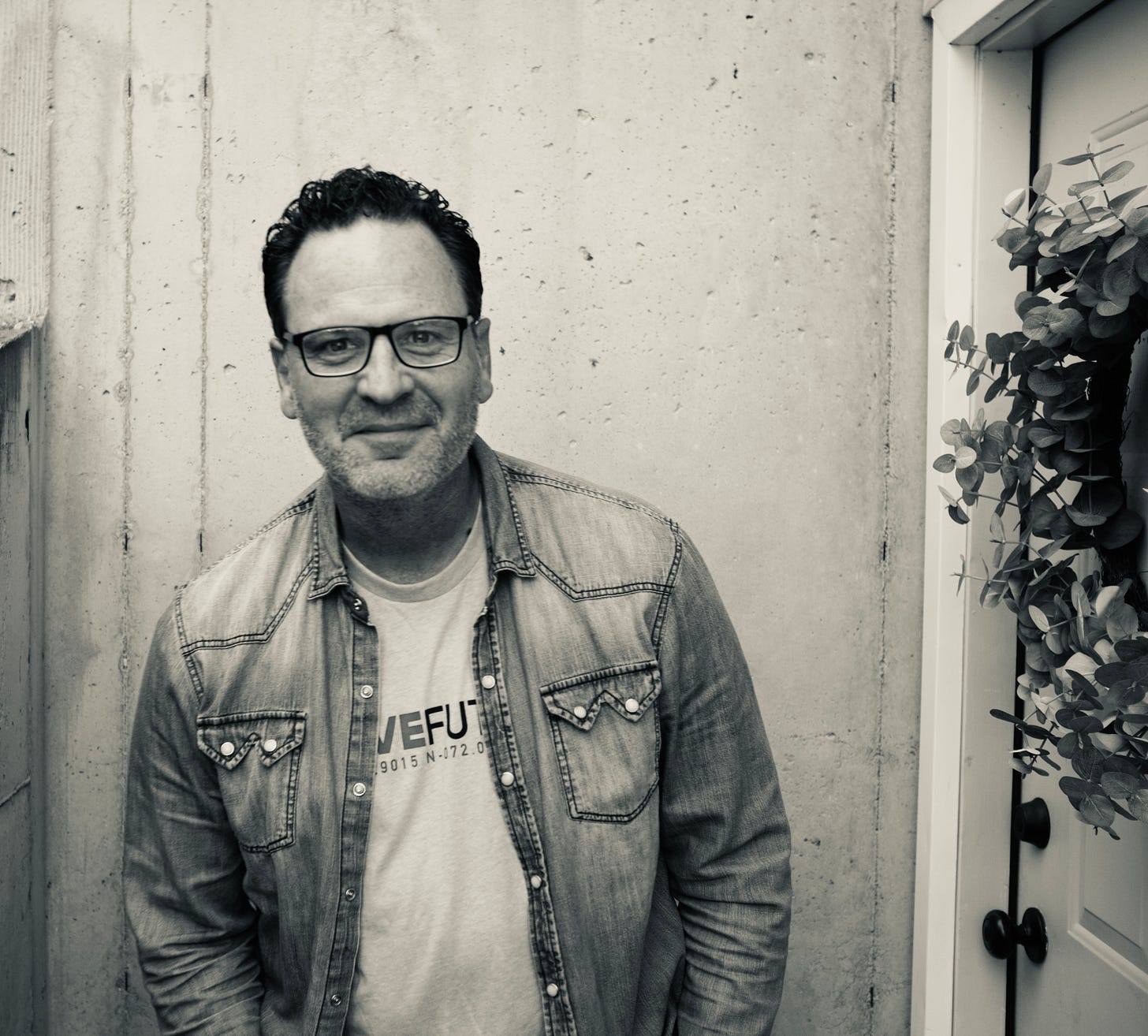Hi, thanks for stopping by 🖐🏼
I'm convinced that for our world to survive, let alone thrive, we'll need a better theological story, something more dynamic than dogmatic, more flexible than fixed, and more consensual than coercive.
In short, we need a better story about love.
Telling a better story means approaching love differently than we have in the past. The old Einstein adage has never been more true: "We can't solve problems by using the same kind of thinking we used when we created them." 👈🏼
And that is why I'm on Substack (why I podcast, sketch, and teach, too) … I'm trying to re-invigorate our thinking around love. In doing so, I'm going to leverage the insight I've found in mimetic theory and open and relational theology.
I hope to help you reason (and give you reasons) to consider love as an uncontrolling, non-violent, non-binary, non-scapegoating energy in relationship with the divine and the world that's meant for flourishing.
Although a caveat comes with my idea of flourishing: my definition of the word contains “lack.” Look, you’re not going to get the thing you want, not exactly. Desire doesn’t work that way. Wanting is fueled by the not having. It’s the lack that produces the energy. So, flourishing isn’t necessarily happiness, completeness, achieving, or filling the gap with anything (including with God); no, the depth of flourishing allows lack to be with you on the journey of love.
Yep, those two paragraphs are both my working definition and my working motivation.
Things You Could Say About Me
I'm a father, husband, lowercase-t theologian, podcaster, with a doctorate in theology (DTh in mimetic theory and open and relational theology), and the author of a few books.
I've spent much of my life as a pastor, and honestly, I still tend to think of myself that way, despite the reality that my former denomination asked me to "surrender my credentials" over my insistence that we treat LGTBQ+ human beings with dignity and grace. This was a vocational watershed moment in my life—absurd and unfortunate, but also … I was honored to play a small role in helping further the story of love.
And since we're saying things about me (and love), well, nothing is more relevant than pointing out that our girl died on New Year's Day, 2015. So, for good or for bad, my theology will always be filtered through the shadow of losing a twenty-year-old daughter. (Again, the “lack.”) 💔
When I'm not writing, I'm usually hiking, wrestling my one-year-old granddaughter (she's the coolest), or raising money for and interacting with my friends at lovehaiti.org, a nonprofit we founded ten years ago to help Haitians with healthcare, education, and wealth creation.
Things Others Have Said About My Writing
After reading indigo: the color of grief, Brian McLaren said, "Jonathan's writing is heart-breaking, heart-opening, and heart-expanding. "
Regarding Theology of Consent: Mimetic Theory in an Open and Relational Universe, Brian Zahnd said it "hums with creative theological insight."
And
Palmer said my writing is "helping people metabolize toxic theology."Free subscribers have access to
The world's first Substack attempt at blending René Girard's scapegoating theory with open and relational theology.
Compelling insights into anthropology, theology, grief, lack, and the nature of love.
Opportunity to give feedback on early iterations of my writing.
General news and updates about my speaking schedule.
And sketches that my wife almost never think are funny.
Paid subscribers receive all free content plus
Access to me on zoom, once a month. Most often, I engage with people around one of three subjects:
theology (i.e., deconstruction and reconstruction of faith as informed by mimetic theory and open and relational theology).
writing (i.e., assessing a manuscript, creative or theological development ideas, publishing overview).
supporting pastors as they and/or their churches go through theological change.
A free pdf of indigo: the color of grief (or any of my books). Oh, and please make sure to reach out to me after subscribing if you haven’t received something.
Advanced reader copies of future material.
Opportunity to participate in book clubs.
Opportunity to join in periodic zoom group discussions.
Extra audio and video clips from the podcast.
And an immeasurable amount of warmth and fuzziness for supporting this creative work that I'm doing. ♥️
Thanks everyone and all my best,
Jonathan
(jonathanfosteronline.com)
AI Disclosure
If you're looking for AI-generated writing, you're in the wrong place. My writing will always be my own work. I do use Grammarly for copyediting—it's incredibly helpful, though, in an effort to preserve my “own voice,” I find myself consistently ignoring some of its suggestions. And recently, I started using claude.ai for research, ideation, and fine-tuning. So far, claude.ai doesn’t feel all that dissimilar to using a very fast, detailed, if not conversational search engine. Side note: My search engine of choice is Ecosia because, like claude.ai's parent company, Anthropic, they seem relatively ethical. For good or for bad, friends, everything is relative.




